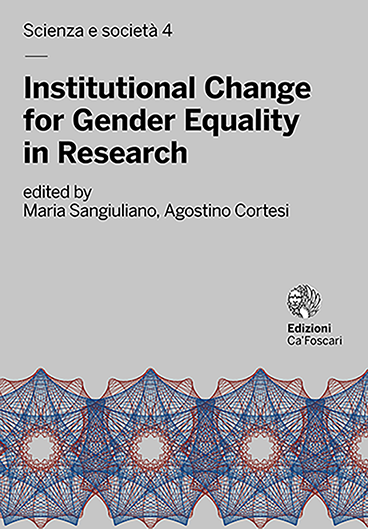- search 242 views
- file_download 5 download
- keyboard_capslock metadata
-
mark_email_readIscriviti alla newsletter
Adapting Participatory Gender Audit to Small-Medium Sized ICT/IST Research Institutions
The EQUAL-IST Methodology
abstract
One of the most critical phases to start a process of structural change for gender equality in a research institution is represented by the internal assessment of gender inequalities that allows to identify the main gender bias at the institutional level and may provide inputs to the design of the required measures and actions to enhance gender equality. Within the context of the EQUAL-IST project (Gender Equality Plans for Information Sciences and Technology Research Institutions), an innovative methodology for gender assessment has been developed to be adapted to research institutions with a strong component in ICT/IST. This field, recognized as one of the most affected by gender inequalities at all levels, presents peculiar issues iin terms of gender equality: in the ICT/IST field, indeed, a significant under-representation of women can be observed already at the level of the student population (Bachelor, Master and PhD); then, the gap tends to increase among the researchers and becomes more and more severe going up to the high levels of professors and top managers. In this chapter we present the gender assessment methodology developed in the EQUAL-IST project, that exploits a mixed strategy integrating two main approaches followed by existing methodologies for gender audit. On one side, a quantitative approach, based on measurable indicators computed on gender disaggregated data, is considered with the aim provide measurable and comparable information that facilitates monitoring and evaluation of gender equality policies impact over time. On the other side, the methodology integrates a qualitative approach, based on participatory techniques and tools such as focus groups, workshops, semi-structured interviews. These tools have the main objective to start raising awareness and to trigger a self-reflection process about processes and procedures, organizational culture and individuals self-perception about gender issues. The chapter presents in details the developed methodology for gender assessment, highlighting the main criteria followed for the choice of the quantitative indicators and the collaborative nature of the design and development process that, starting from the ILO PGA (Participatory Gender Audit), led to the final version of the methodology based on feedbacks received from the 7 EQUAL-IST RPOs through several steps of adaptation and customization.
Keywords: Quantitative and qualitative approach • Gender equality in ICT/IST research institutions • Participatory Gender Audit
